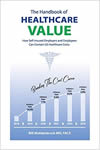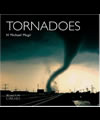All Articles
Accounting
Engines (Combustion - Diesel)
Addiction Issues & Substance Abuse
Eyewitness Testimony
Alternative Dispute Resolution (ADR)
Fires & Explosions
Anger Management & Related Issues
Food & Beverage
Archaeology - Archeology
Gems & Jewelry
Automotive - Vehicular
Human Resources
Boating
HVAC - Heating, Ventilation, Air Conditioning
Business Consulting
Injury
Chemical Industry
Insurance
Child Welfare
Insurance Coverage Analysis
Computers
Internet Marketing
Cosmetology: Hair / Makeup
Law Enforcement
Counseling
Marine - Maritime
Criminology
Medical Records Review
Crisis Management
Mining
Damages
OSHA
Dental - Dentistry
Plastic / Reconstructive / Cosmetic Surgery
Design
Politics
Digital / Crypto Currency
Product Liability
Digital Forensics
Professional Malpractice
Documentation Examination & Analysis
Real Estate
Domestic Violence
Terrorism - Homeland Security
Economics
Underwriting
Elevators - Escalator - Automatic Doors
Workplace Violence
Energy - Utilities
Yoga
More...

ACCOUNTING-PAGE ARTICLES MAIN PAGE
. Contact Us if you are interested in having your work published on our website and linked to your Profile(s).
All Articles
Addiction Issues & Substance Abuse
Forgery & Fraud
Alcohol, Tobacco & Other Drugs
Hazardous Materials
Archaeology - Archeology
Healthcare
Architecture
Healthcare Facilities - Hospitals
Banking
Human Factors
Biokinetics
Hydrology
Blockchain Information
Intellectual Property
Boating
Investigation & Surveillance
Chemical Industry
Jails - Prisons - Correctional Facilities
Child Welfare
Law Enforcement
Computer Forensics
Legal Issues
Computers
Linguistics
Construction
Manufacturing
Corrosion
Meditation
Counseling
Metallurgy
Digital / Crypto Currency
Nursing
Digital Forensics
Pharmacy & Pharmacology
Domestic Violence
Product Liability
Education & Schools
Psychology
Elevators - Escalator - Automatic Doors
Real Estate
Engines (Combustion - Diesel)
Securities
Exercise & Fitness
Security
Expert Witnessing
Transportation
Feng Shui
Underwriting
Foreign Affairs - Geopolitics
Workplace Violence
More...
Featured Articles
There are no active articles here at this time. Please use the search bar, try another category, or contact us if you would like to contribute an article.
This Article is unavailable. Contact Us
Search articles by title, description, author etc.
Sort Featured Articles
Featured resources
The Handbook of Healthcare Value: How...
by Bill Mohlenbrock MD
10 Days to a Bully-Proof Child: The...
by Sherryll Kraizer, PhD
Tornados (Worldlife Library)
by H. Michael Mogil
Follow us










